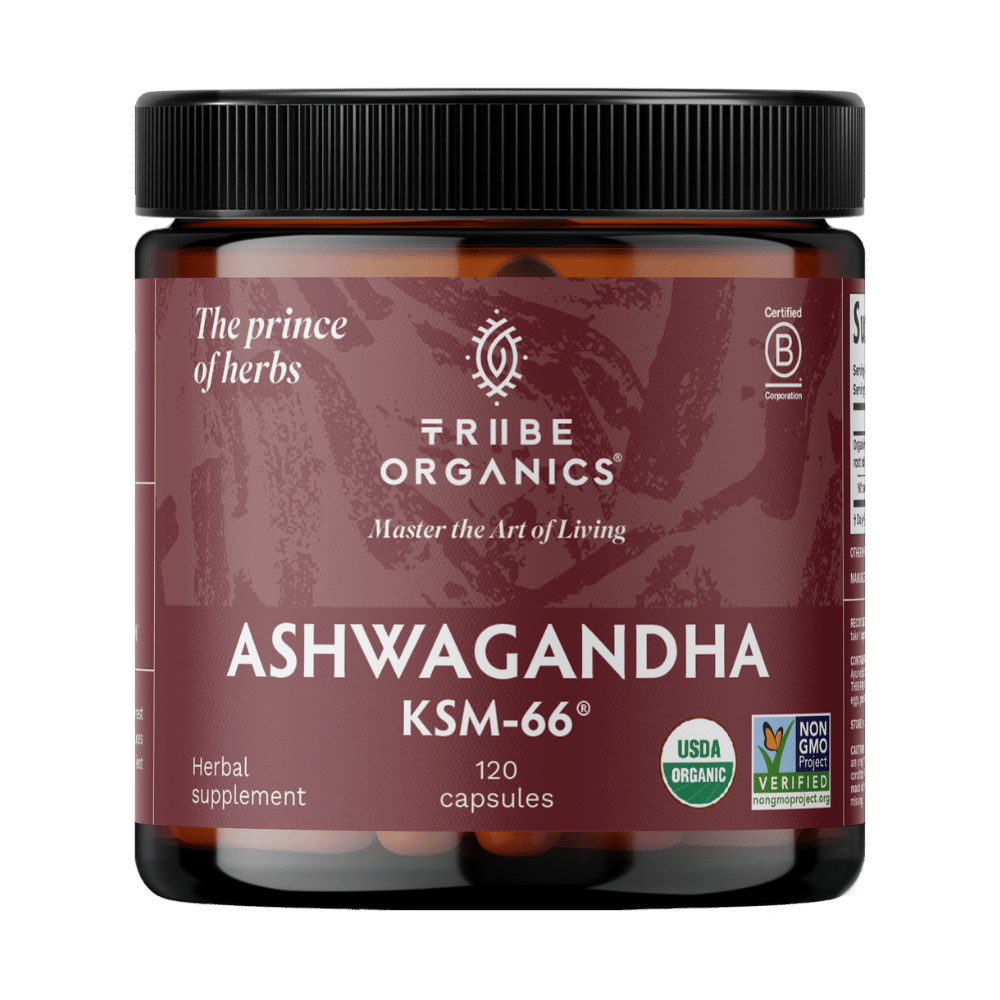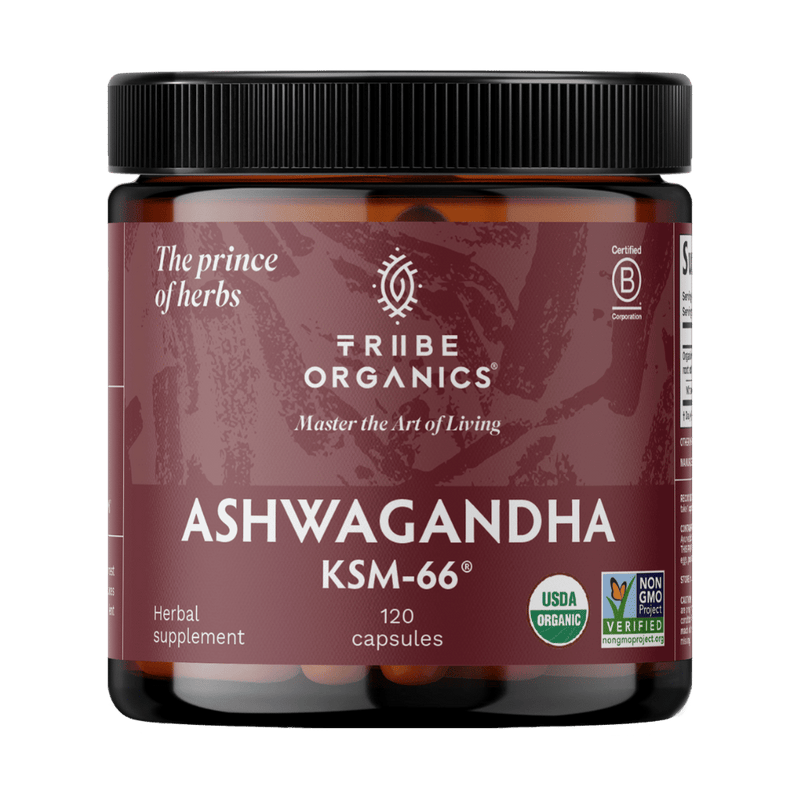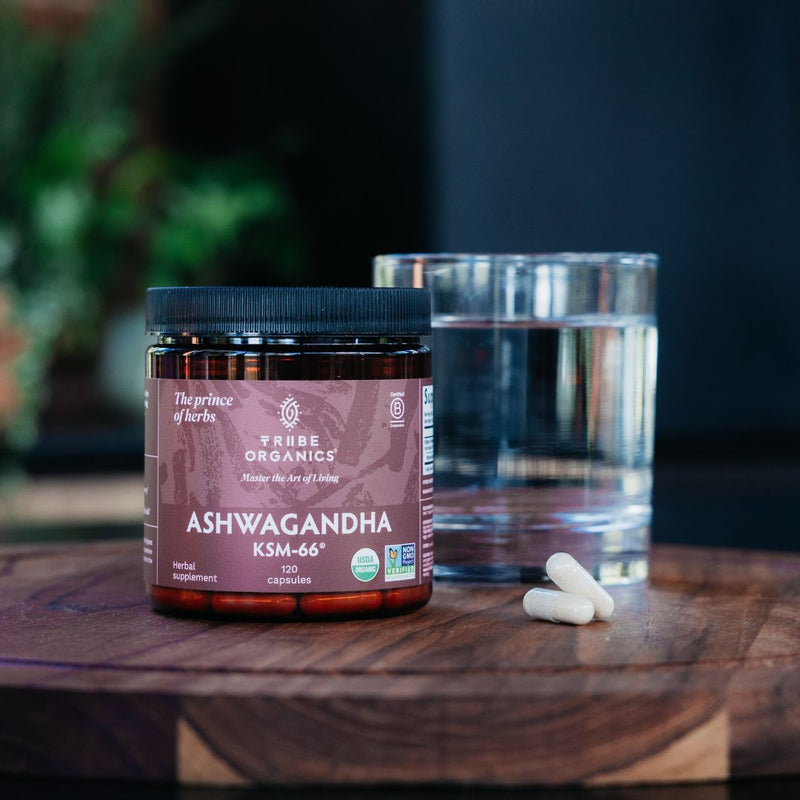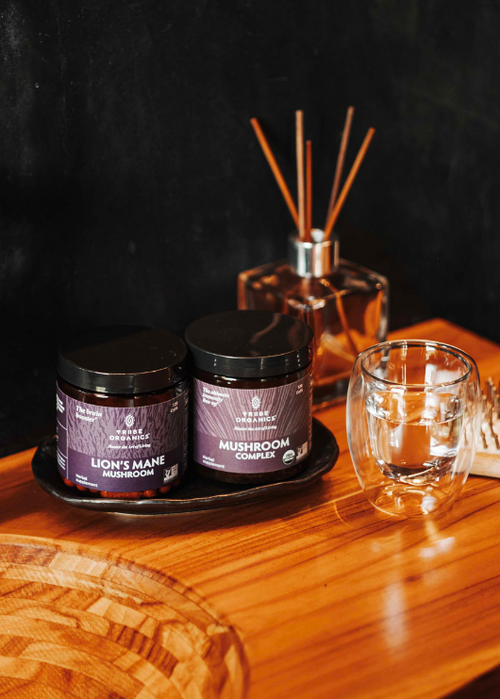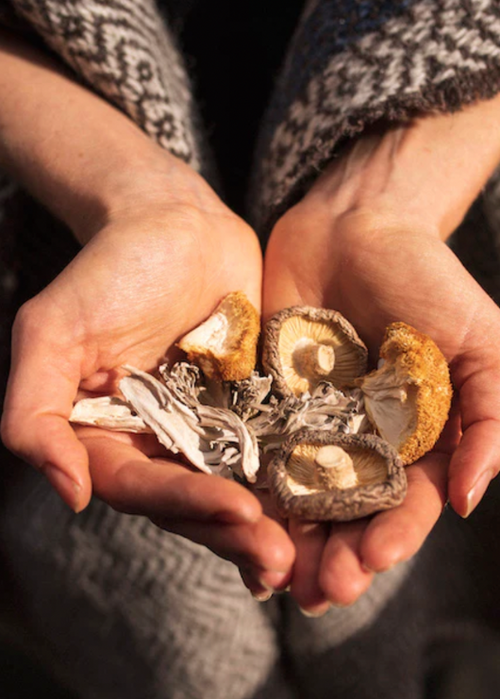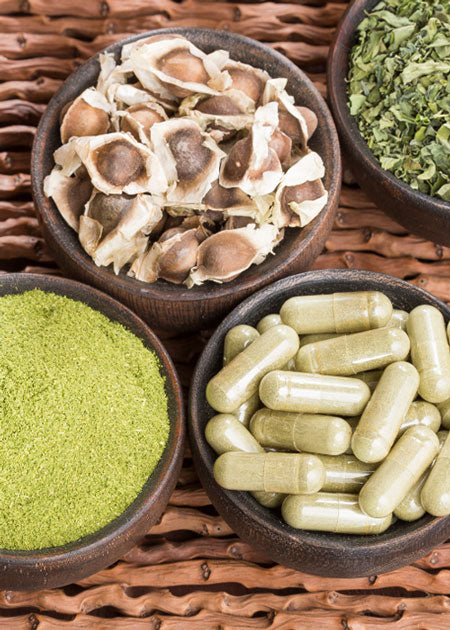You’ve heard of it, but do you know what it is or how to use it?
From improving cognitive function by reducing stress and anxiety to promoting muscle recovery and testosterone levels, this herb is what's missing from your muscle-building routine.

What Is Ashwagandha?
Ashwagandha root extract is a multifaceted herb from Ayurvedic medicine, that is focused on lengthening lifespans.You may hear it called by:
- Withania Somnifera
- Indian Ginseng
- Winter Cherry
As an adaptogen, it is from a family of medicinal plants, herbs and roots commonly used in alternative medicine that help the body deal with (or "adapt") to both mental and physical stressors.Some other adaptogens are:
- American Ginseng
- Siberian Ginseng
- Rhodiola Rosea
Many of these herbs have been used in Ayurveda and traditional Indian medicine for hundreds of years - Ashwagandha included.There's a great list of benefits Ashwagandha can support - but in this article, we will talk about the impacts it can make on physical performance. The primary health benefits here are its impact on cortisol, testosterone, and muscle recovery.
Natural Sports Enhancement
Cortisol Levels
Cortisol is a hormone your adrenal glands produce and is essential during times of stress for your:
- Metabolism
- Immune function
- Energy regulation
Also known as the "stress hormone," this stress response was essential to the evolution of mankind. Back when humans were living in caves (and not at the bench press) , if they came upon a threat - their body would immediately produce cortisol, AKA the fight or flight response. This reaction re-writes how the body uses energy to help survival. The change a subject's body goes through increases blood sugar pauses digestion and allows the breaking down of muscles for energy, everything needed to fight for their life.
Most of us will never truly need the fight-or-flight response, but our body responds with the same increase in cortisol to mental and physical 21st-century stressors.
Chronic Stress Impact
Cortisol is a catabolic hormone. Because of its function to help utilize the energy stores in muscle tissue, the higher your cortisol levels in your body, the less it's able to be in the anabolic state where muscle growth happens.
One of Ashwagandha's most desirable traits is its ability to lower your body's stress response and cortisol.
In a placebo-controlled study, individuals with a history of chronic stress were assigned to either receive 600mg of Ashwagandha root extract or a placebo. After about eight weeks, it was shown that the Ashwagandha group on average had 20% lower cortisol levels compared to the placebo group. This randomized controlled trial is only one of many research groups to support the impact Ashwagandha has on stress (hence its classification as an adaptogen).
Testosterone Levels
Cortisol has an inverse relationship with testosterone, which means that higher cortisol = less testosterone. Ashwagandha supports the increased production of testosterone. Testosterone is responsible for increased muscle mass and strength and is key for any weight training or resistance training program.
For this reason, Ashwagandha has been traditionally used to improve sexual performance, libido and sperm vitality. It's been recognized for its fertility-boosting powers in both men and women. As Ashwagandha reduces cortisol, it shifts hormone production to anabolic hormones (testosterone and DHEA).
How Ashwagandha Benefits Overall Health
Ashwagandha and Heart Health
The herb can help support a healthy heart. Research suggests that it can reduce LDL cholesterol levels (aka the "bad" cholesterol). LDL cholesterol contributes to the build-up of fatty stores in arteries.
Ashwagandha may also lower triglycerides and improve blood pressure.
That being said, if you're currently on medication for your heart function, it's best to consult with a doctor before changing or adding to your routine.
Ashwagandha and Brain Health
Any stress you experience, especially long-term, can seriously damage your brain. Age-related diseases such as Alzheimer's or dementia have been connected to chronic stress.
Ashwagandha can protect your brain from degeneration and reduce anxiety.
Over 3 million in the US alone have been diagnosed with depression. Depression is also impacted by stress hormone levels in the body, Ashwagandha can support depression treatment by subsequently reducing those levels.
Ashwagandha may also increase hemoglobin levels, which are the red blood cells that deliver oxygen through the body. Improving this function means more efficient oxygen transfer, increased energy and overall well-being. VO2 levels are key to enhancing physical performance.
Ashwagandha and Blood Sugar
Ashwagandha may help balance blood sugar levels. Unregulated or high blood sugar can lead to life-long conditions from heart disease to nerve problems. In human studies, Ashwagandha supplementation has been shown to be sufficient at lowering blood glucose.
Ashwagandha and Infertility
As mentioned previously, one of the most well-known benefits of Ashwagandha is it's impact on fertility. Supplementation can help treat fertility in both men and women. One study found that adding this herb into a daily routine could increase fertility by 15% in men.

Does Ashwagandha Have Any Side Effects?
Just like any other supplement, you should consult with your doctor to see if this is the right addition to your diet.
Major side effects are rare, but those who have hormone disorders, high blood pressure, or are currently taking thyroid medication are more likely to see a disruption in their currently managed health. If you have a treated pre-existing condition, you should confirm with your primary care provider that Ashwagandha supplementation will not conflict.
The most common side effect is an upset stomach, nausea or diarrhea. These stomach irritations can be avoided by taking the herb at night, or with food.
Who Should Consider Supplementing with Ashwagandha?
Ashwagandha can be especially useful for those:
- Who are struggling to manage their stress
- Want to naturally increase testosterone production
- Are experiencing a low libido
- Want to pass a training plateau
How to Take Ashwagandha
Ashwagandha root is usually taken in capsule or tablet form. Results are seen after consistent use, so the best place to add it to your diet is a routine you can stick to.
You can take it with or without food, and at any time of day. Many take it before bed as it has been shown to promote better sleep.
If you have a sensitive stomach, make sure to take Indian ginseng with food - or at night if you prefer to take your supplements on an empty stomach.
Final Thoughts
Ashwagandha could be the key to supercharging your results at the gym. This herb has been connected to increased muscle mass, the ability to lose fat and improved muscle recovery to prevent orthopedic injury.
If you're looking to pass a workout plateau and improve recovery and performance, try adding Ashwagandha into your routine.
Shop best sellers
Explore our collection of favorite items that have gained popularity for their quality and satisfaction.

